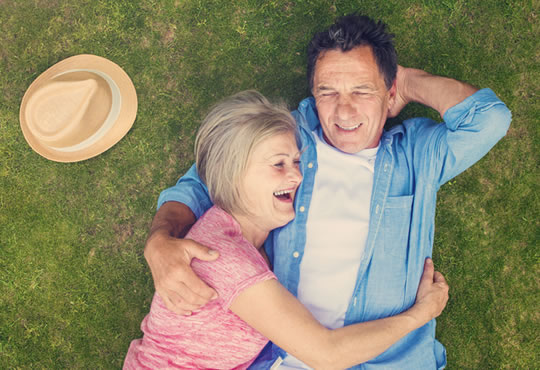The wonderful power of awe, the source of life’s most emotional moments. Plus: you really can smell happiness…
1. Awe expands time and increases well-being
Awe makes people more patient, less materialistic and more open to helping out others.
This happens, authors of a recent study think, because awe slows down our subjective experience of time.
The researchers described their conclusions:
“People increasingly report feeling time starved, and that feeling exacts a toll on health and well-being.
Drawing on research showing that being in the present moment elongates time perception, we predicted and found that experiencing awe, relative to other states, caused people to perceive that they had more time available and lessened impatience.
Furthermore, by expanding time perception, awe, compared with other states, led participants to more strongly desire to spend time helping other people and to partake in experiential goods over material ones.”
2. Awe protects mind and body
The wonderful effects of awe do not end with expanding time and increasing well-being.
Positive emotions, especially the feeling of awe, have been linked to lower levels of inflammatory cytokines by a recent study.
The research suggests that the positive feeling from enjoying the beauty of nature or getting lost in a painting or symphony can actually help protect the body against heart disease, arthritis, depression, and even Alzheimer’s disease.
3. Why happiness makes people cry
When you think about it, these are pretty weird:
- Spouses cry when reunited with a soldier returning from war.
- Lottery winners disintegrate into floods of tears.
- Soccer players scream when they score the winning goal.
- Teenage girls scream and cry at a Justin Bieber concert.
Shedding tears might seem a strange response to happiness, but a recent study suggests that it helps people cope with overwhelming emotions.
Crying tears of joy may be the mind’s way of restoring emotional equilibrium, according to the study.
4. All human communication is positive (that’s on average!)
Apparently, human communication is pretty happy, overall.
Across multiple languages and in many modes — movie subtitles, music lyrics, Russian literature — human communication skews towards the positive, a recent study found.
Professor Peter Dodds, a mathematician and the study’s lead author, said:
“We looked at ten languages, and in every source we looked at, people use more positive words than negative ones.”
While some sources were more positive than others, with Chinese books being the least positive and Spanish-language websites being the most positive, all the samples averaged above the neutral point.
This was even the case for English language song lyrics, which were ranked 22 out of 24 categories for happiness, with only Chinese novels and Korean subtitles being less happy.
5. Men and women process emotions in different ways
Women rate emotional images as more stimulating and are more likely to remember them than men, a recent study found.
While strong emotions tend to boost memory for both men and women, this neuroimaging study may help explain why women often outperform men on memory tests.
Women found the emotional pictures — and especially the negative pictures — more stimulating than the men.
Dr Klara Spalek, the study’s first author, said:
“This result would support the common belief that women are more emotionally expressive than men.”
6. A common painkiller also kills pleasure
Acetaminophen — also known as Tylenol (or paracetamol outside the US) — kills positive emotions, a study has found.
Studies have already shown that the painkiller blunts both physical and psychological pain.
But this is the first time anyone has thought to test the popular painkiller’s effect on both negative and positive emotions.
Geoffrey Durso, the study’s lead author, said:
“This means that using Tylenol or similar products might have broader consequences than previously thought.
Rather than just being a pain reliever, acetaminophen can be seen as an all-purpose emotion reliever.”
7. Genes make some people more emotionally reactive
Carriers of a certain genetic variation experience positive and negative emotions more strongly, a recent study suggests.
The genetic variant is carried by around 50% of Caucasians — although the percentage varies between ethnicities.
The feelings are accompanied by greater activation in regions of the brain linked to emotional processing.
The study may help to explain why some people are particularly susceptible to post-traumatic stress disorder (PTSD).
8. Life’s highest highs and lowest lows come from…
When you look back over your life, which moments have given you the most pain — and which the most pleasure?
Some might guess it’s individual achievements, like getting a promotion, or individual failures, like failing an exam.
In fact, research suggests that it’s the highs and lows of social relationships that provide the highest highs and lowest lows.
Dr. Shira Gabriel, whose study this finding is based on, said:
“Most of us spend much of our time and effort focused on individual achievements such as work, hobbies and schooling.
However this research suggests that the events that end up being most important in our lives, the events that bring us the most happiness and also carry the potential for the most pain, are social events — moments of connecting to others and feeling their connections to us.”
9. It’s emotions that make diets hard to follow
As every dieter knows, planning a diet and actually following through are two completely different things.
The reason is that most people think their conscious thoughts and intentions will change their behaviour, when in fact they don’t.
What really drives a lot of actual, real-world dieting behaviour is the emotions.
Dr Marc Kiviniemi, a public health researcher at the University at Buffalo, explained:
“The crux of the disconnect is the divide between thoughts and feelings.
Planning is important, but feelings matter, and focusing on feelings and understanding their role can be a great benefit.
If you’re sitting back conceiving a plan you may think rationally about the benefits of eating healthier foods, but when you’re in the moment, making a decision, engaging in a behavior, it’s the feelings associated with that behavior that may lead you to make different decisions from those you planned to make.”
10. You really can smell happiness
People communicate their happiness to others through their perspiration.
There are chemical compounds in sweat, it turns out, that can be detected by others.
Previous studies have shown that we can smell fear and disgust in sweat — but happiness has been more of a gray area.
Professor Gün Semin, a psychologist at Utrecht University in the Netherlands, who led the study, said:
“Our study shows that being exposed to sweat produced under happiness induces a simulacrum of happiness in receivers, and induces a contagion of the emotional state.”
Woman and sunset image from Shutterstock










